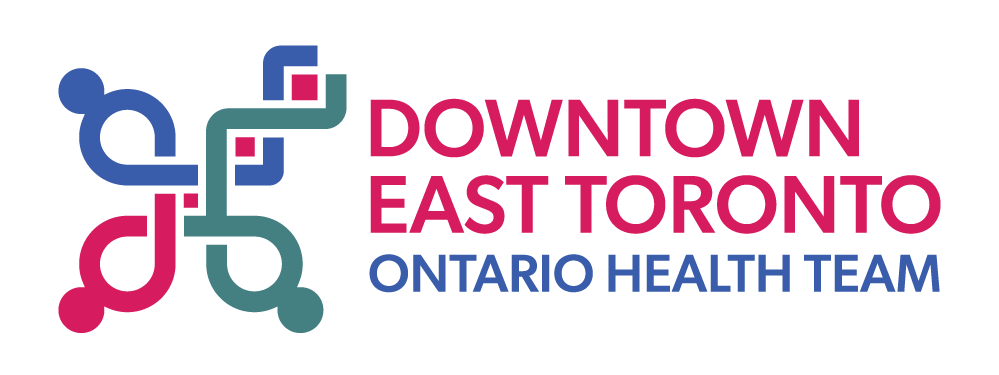A beacon of hope: DET OHT’s community leader advocating for vulnerable populations

Sophia Morgage is the co-Chair of the Community Advisory Council and Community Engagement working group of the Downtown East Toronto Ontario Health Team (DET OHT). She was one of the earliest community members to join the DET OHT at the peak of the COVID-19 pandemic and played a key role during its early development phase. Since then, she has been an important contributing member and continues to bring a perspective of lived experience to inform DET OHT’s programs, processes, and decision-making.
Sophia immigrated to Canada from Jamaica at the age of 19. She is a proud resident of the City of Toronto and has been an active member of the community for a decade. While working as a peer support worker at the warm line of Progress Place, a mental health community and wellness centre in Toronto, Sophia’s manager took note of her talent and ambitions and advised her to join the DET OHT’s network of community members.
The community members of the DET OHT are integral collaborators on programs and initiatives and help understand the challenges faced by the DET OHT’s priority populations, including people experiencing homelessness, mental health issues, and addictions. The DET OHT depends upon the guidance of its community members with lived experience to co-design a better health system that will meet the unique needs of the individuals living with or receiving services in the DET OHT.
Sophia co-founded the DET OHT Community Advisory Council and steered the development of its structure, terms of reference, and recognition framework. She is also the guiding force behind onboarding and training new community members. One of the many projects that Sophia has co-designed and guided is the Community Members’ Engagement Survey, which evaluates the experience of community members working on DET OHT projects.
Sophia’s contributions to the DET OHT are driven by her life experiences. She struggled to find housing for the better part of her young adulthood and was later diagnosed with a mental illness. Upon diagnosis, she moved in with her mother so that she could receive care while surrounded by her supportive family.
“I remember feeling helpless and confused when my care practitioners at the hospital informed me that I was incapable of making my own decisions. I realized that I was at the mercy of the care team and the health system,” recalled Sophia while speaking about her treatment journey.
During her stay at a hospital, a social worker briefly counselled her on securing and sustaining housing. However, the interaction did not result in a tangible outcome. Sophia says her experience in a hospital made her realize that many factors can contribute to one’s health, such as housing.
“Getting treatment may not solve the underlying problem of precarious housing.”
Challenges around precarious housing are extremely stressful and can affect one’s overall health and well-being. According to the City of Toronto’s Street Needs Assessment (SNA) Report 2021, the under and precariously housed population have multiple health support needs. The survey identified 50% of the respondents as having mental health illnesses and 42% as having substance abuse and addictions.
The situation becomes even more worrisome in Downtown East Toronto, where three of the ten poorest census tracts of the city are located. St. Michael’s Hospital alone receives 45% of Toronto’s Emergency Department visits and 44% of inpatient stays from the under-housed population.
Although people from various backgrounds face under-housing challenges, few groups remain overrepresented. The SNA Report identified almost 60% of the respondents as members of racialized groups. As a person of colour who has personally experienced stigma attached to black people, Sophia’s leadership in the DET OHT’s Community Advisory Council and Community Engagement working group has been pivotal in engaging community members with diverse backgrounds.
Today, Sophia holds a college diploma in social service and is excited to graduate with a Bachelor’s in Sociology from York University in June 2023.
“I strongly believe in the value contributed by case managers and outreach workers to a public health system. I want to be a Mental Health Case Manager and help individuals experiencing housing and mental health issues navigate the health system,” she comments while discussing her career and life aspirations.
While reflecting on her journey from being an immigrant to overcoming housing challenges and everything in between, she remains assured and steadfast about her life goals.
Join Us
If you are a community member with lived experiences and willing to enhance health and community care journey of vulnerable populations in Downtown East Toronto, DET OHT invites you to join its Community Engagement working group. Email your expression of interest to:
